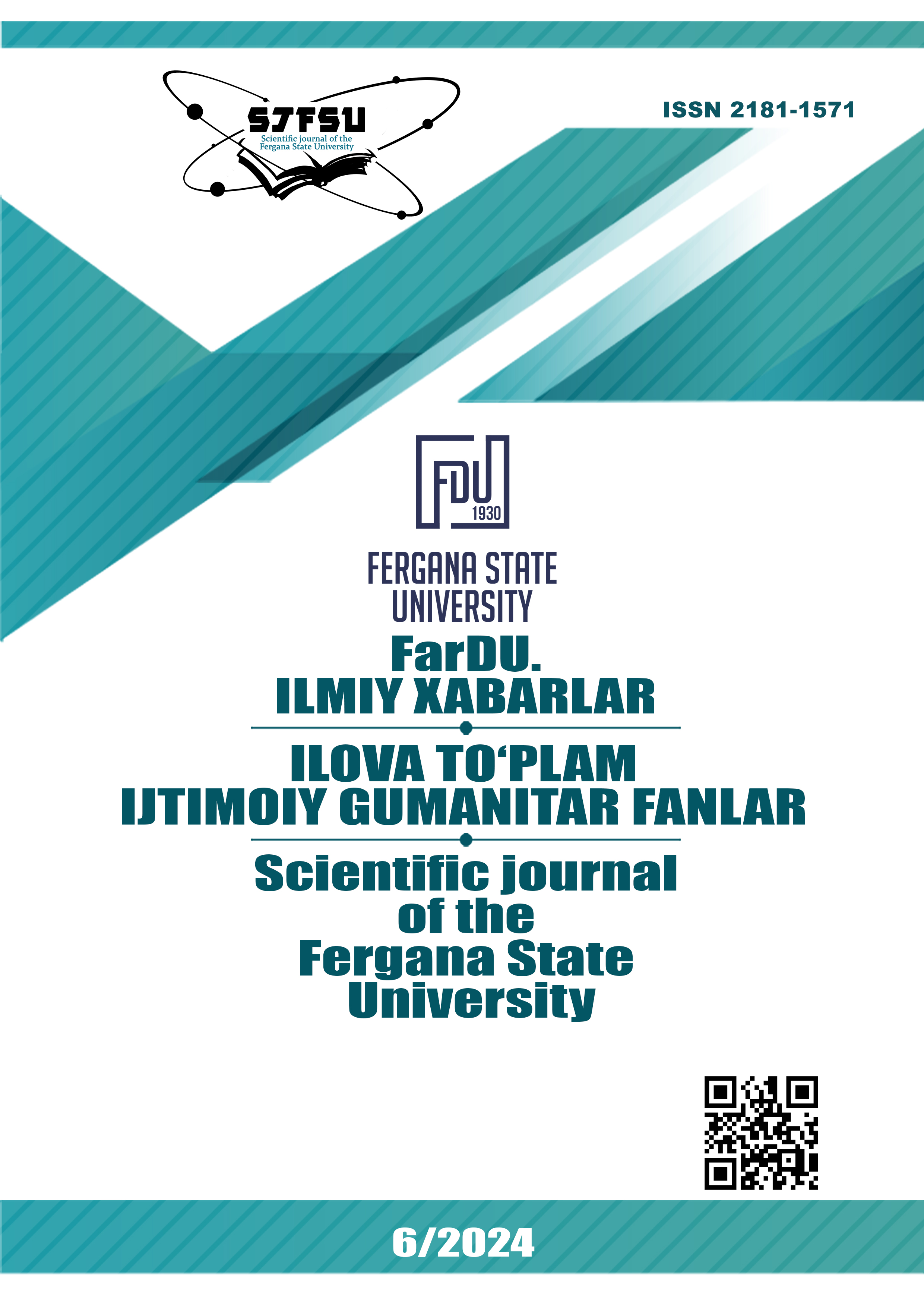AXIOLOGY OF LANGUAGE: HOW VALUES SHAPE PHRASEOLOGY AND CULTURAL CONSCIOUSNESS
Keywords:
Axiology, Values, Language, Phraseological units, Cultural significance, Ethics, Beliefs, Norms, Philosophy, Linguistics, Idiomatic expressions, Cultural and linguistic significance, Cultural identityAbstract
The article is devoted to the study of the relationship between axiology and language, focusing on the expression of values through phraseological units such as idioms and metaphors. Language is considered not only as a means of communication but also as a mirror reflecting the cultural, ethical, and historical features of society. Special attention is paid to the analysis of idiomatic expressions from different cultures, which allows us to identify differences in priorities, norms, and worldviews. Phraseology plays a key role in language study, as it reflects the profound cultural and value aspects of society. Phraseological units are not just stable expressions but also carriers of collective experience, traditions, and worldviews. The study of phraseology fosters intercultural dialogue by helping to identify commonalities and unique characteristics of various ethnic groups. Methods of comparative analysis, conceptual metaphor analysis, and interpretation of phraseological units were applied. The research demonstrates how language serves as an important tool for preserving cultural values, and traditions, and transmitting historical experience. Additionally, the role of language in maintaining gender stereotypes and the possibilities for overcoming them are examined. The results highlight that language is not only a means of transmitting values but also a powerful tool for changing them. In conclusion, the importance of studying language as a tool for intercultural empathy, promoting inclusive communication, equality, and deep understanding of diverse cultural traditions is emphasized.
References
Арутюнова Н.Д. Типы языковых значений: Оценка. Событие. Факт. - М.: Наука, 1988. - 341 с.; Вежбицкая А. Язык. Культура. Познание. - М.: Pусские словари, 1996. - 416 с.; Апресян Ю.Д. Образ человека по данным языка. // Вопросы языкознания, № 1, 1995. - С. 67–34; Лосский Н.О. Бог и мировое зло. - М.: Терра, Республика, 1999. - 432 с.; Франкл В. Человек в поисках смысла. - М.: Прогресс, 1990. - 366 с.; Карасик В.И. Языковой круг: личность, концепты, дискурс. - М.: Гнозис, 2004. - 390с.; Тугарин В.П. Избранные философские труды. - Л.: Изд-во Ленинградского университета, 1988. - 344 с
Арипова З.С. Шахс аҳлоқий фазилатлари такомилида миллий маънавият ва умуминсоний қадриятларнинг ўзаро алоқадорлиги: Фалс. фанл. номз. ...дисс. - Тошкент, 2012. –146 с.; Жўраева Б.М. Мақолларнинг лисоний мавқеи ва маъновий-услубий қўлланилиши: Филол. фанл. номз. ...дисс. - Бухоро, 2002. – 137 б.; Назаров Қ.Н. Қадриятлар тизими: Барқарорлик ва ўзгарувчанлик диалектикаси (аксиологиянинг ижтимоий-фалсафий муаммолари): Фалс. фанл. докт. ...дисс. -Тошкент, 1996. - 131 б.; Рузиева Р.Х. Жамиятнинг маънавий янгиланишида миллий ва умуминсоний қадриятлар уйғунлигини шакллантириш масалалари: Фалс. фанл. докт. ...дисс. -Тошкент, 2012. - 304 б.; Ибрагимова Э. Ўзбек тили лексикасининг аксиологик тадқиқи: Ўқув-услубий қўлланма. – Ф. 2018. – 84 б.
Lakoff G., M. Johnson. Philosophy in the Flesh: The Embodied Mind and its Challenge to Western Thought, New York: Basic Books. 1999. – 305 р.
Satvoldievna, U. D. (2021). Axiological Characteristics of English, Uzbek and Russian Phraseological Units. The American Journal of Social Science and Education Innovations, 3(06), 40-45.
Usmonova, D. (2022). Аxeоlоgicаl Feаtures of Phrаseоlоgicаl Units (in the Cаse of Uzbek, Russiаn and English Lаnguаges). Miasto Przyszłości, 26, 135-136.
Downloads
Published
Issue
Section
License
Copyright (c) 2025 Scientific journal of the Fergana State University

This work is licensed under a Creative Commons Attribution-NonCommercial-NoDerivatives 4.0 International License.

